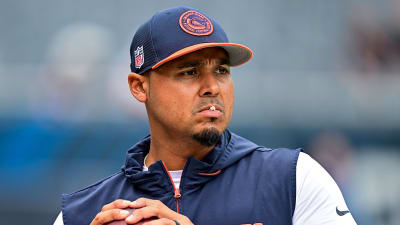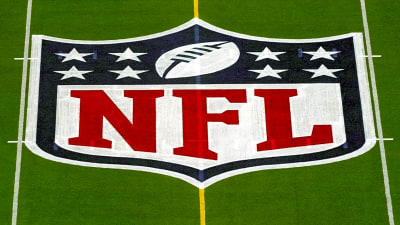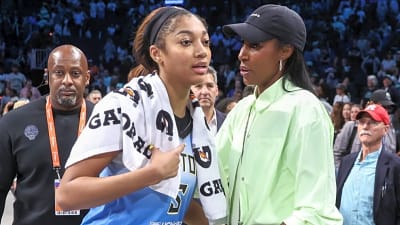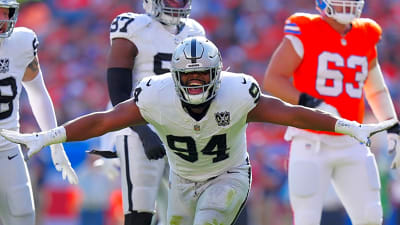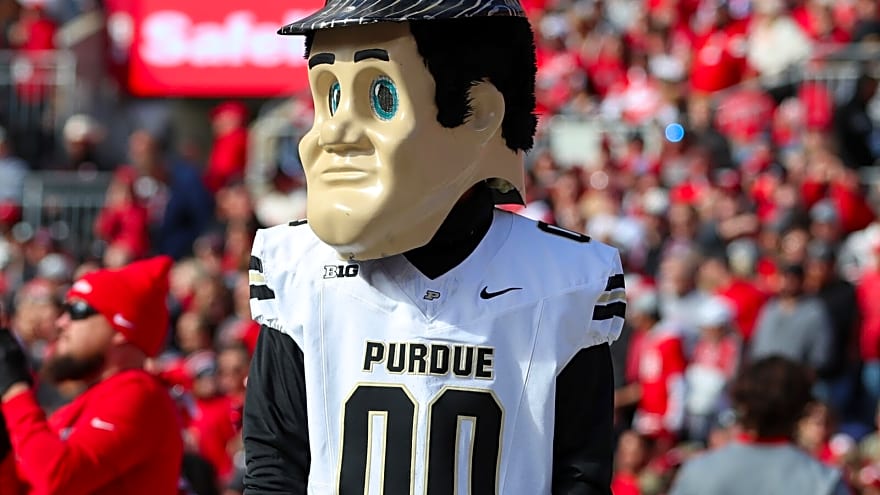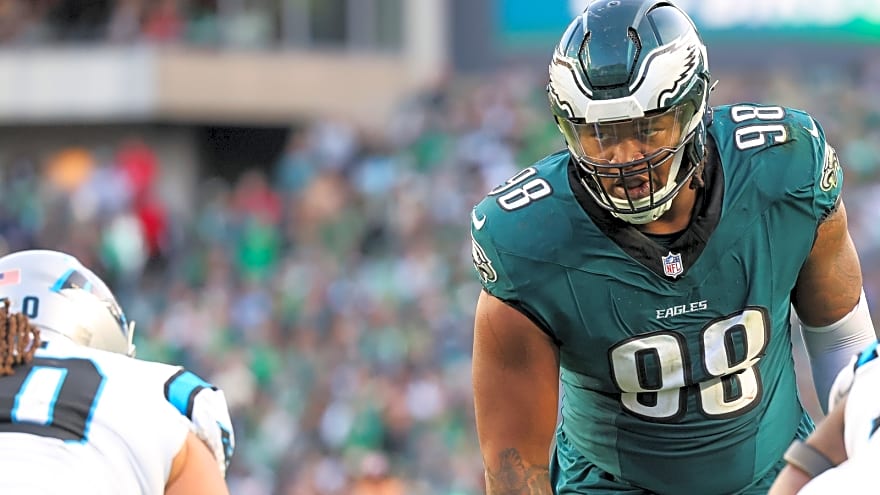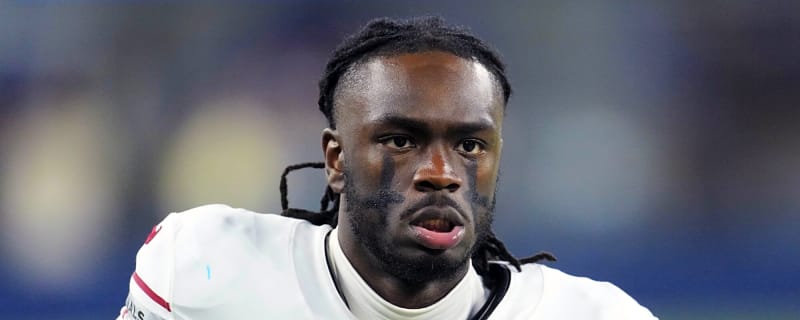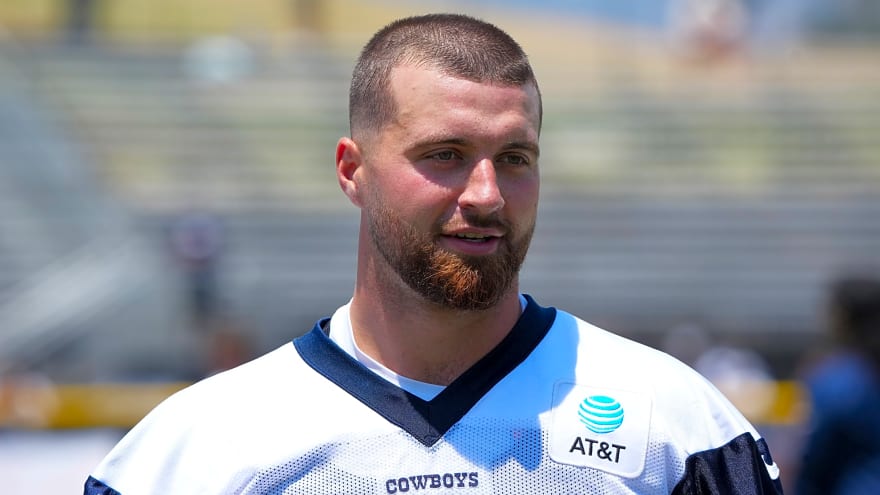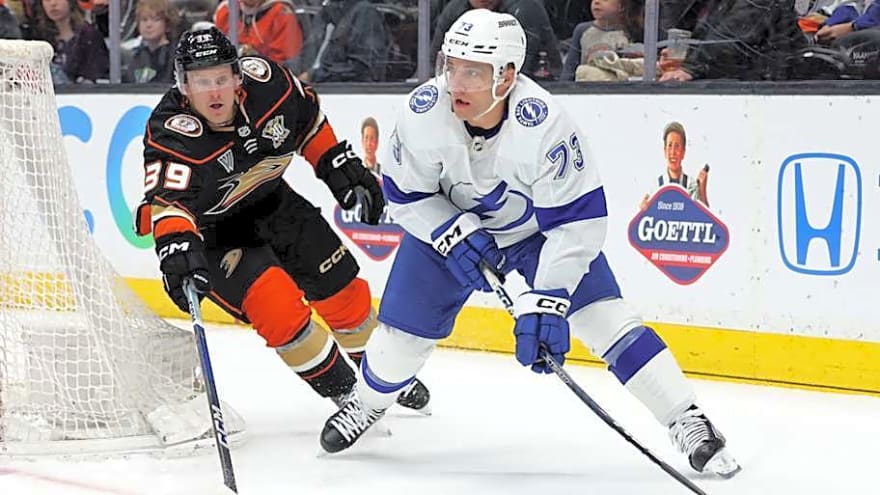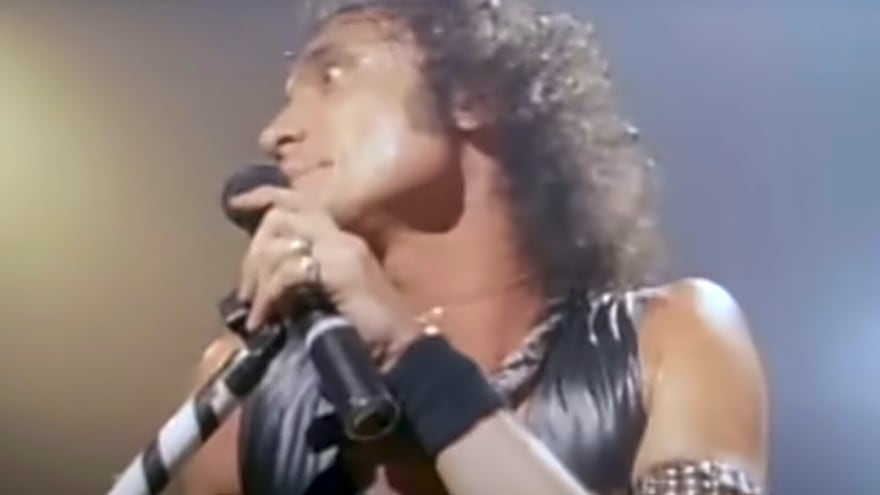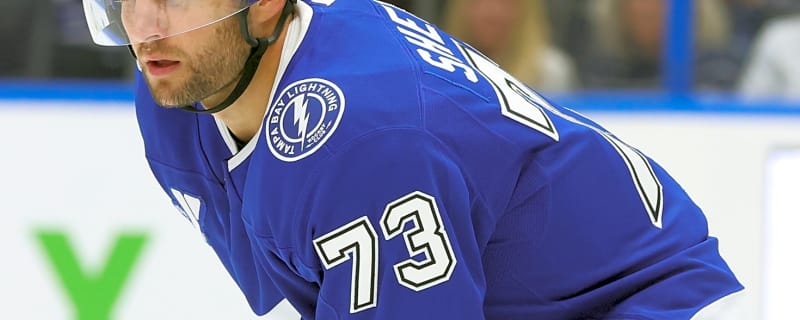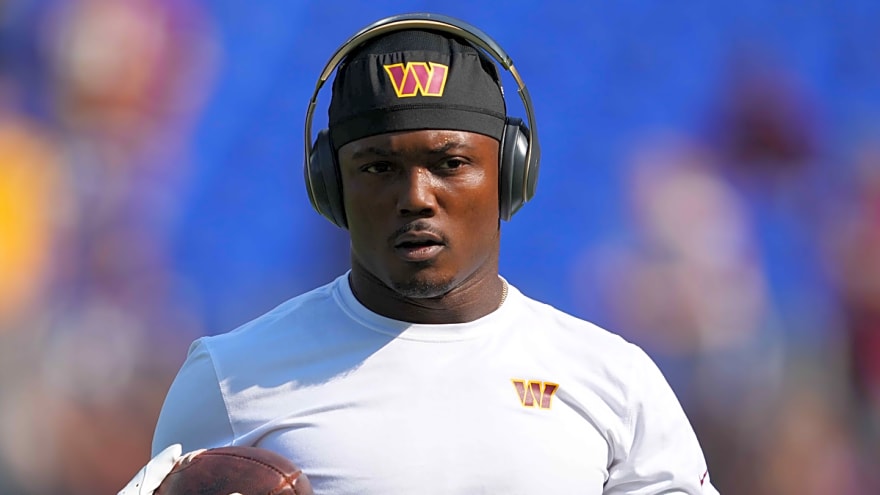PHIL PARKER: Thank you, guys, for being here. Obviously I know you guys watched the game last night, Oklahoma, right? Oklahoma and what was it, Arizona, so I'm glad you guys made it up because I finished watching it, and I said, ‘Boy, I got a press conference tomorrow.’
I welcome you guys here. It's a pleasure to come back here. I think I've been here a couple times and the hospitality has been really good. The fans are starting to come in from Iowa, so that's good.
The thing that we are looking forward to is a chance for our kids to go out here and have an opportunity to compete together, probably for the last time with this team put together.
So I think I've been really pleased how they have handled themselves this whole career and how they have been playing and stuck together as a unit. They are playing good and at a high level. The most important thing we are trying to get our guys to do is improve in football and grow as a player and grow as a person. I think our guys are doing a really good job of that; so I'm looking forward.
About Tennessee, obviously they are well-coached and they are a very talented team. You talk about looking at different things that go on in college football right now, obviously they have some guys, everybody gets in the portal, but if you watched the Kansas State game, there was a young guy in there who was a quarterback that played really well and obviously there was a young quarterback last night playing pretty well.
So that's going to be very interesting and it's going to be challenging for us just based on what I think they have, and they are a talented team. They are 8-4. They have done a good job and I really have a lot of respect for their coach.
Q. Jay, I wanted to ask you about making your decision, what went into it, and now are you kind of transitioning into maybe your future career as trying to be a recruiter for some of your teammates to come back with you?
JAY HIGGINS: Definitely. You know, over the last four years, I built a great relationship with obviously my teammates, and obviously the coaching staff that the University of Iowa has. Just the environment that puts the players first; I felt like if I came back another year, I could be a better football player.
You know, having Coach Parker, having Coach Wallace being the two guys I spend most of my time with, I felt like that was an easy decision for me, really, to make any decision on. Just like improving my game and doing things that I feel I can get better at.
Q. What's your recruiting pitch to Nick and all the others to try to get them to do the same?
JAY HIGGINS: I'm working on trying to recruit some guys who have got some degrees. So telling them that the photo shoot and coming to tour Kinnick Stadium is kind of out of the picture.
But just giving those guys space. Understanding that this decision is going to impact the rest of their life, and just allow them to ask their family what they are thinking. But I told them, you know, the standard is going to stay the same. If those guys stay or leave, they are always welcome with open arms. It will be fun to go out there and play football with some of my best friends for one more year.
Q. You mentioned the challenge of facing a new quarterback. What do you know about Nico Iamaleava, and what do you expect from Tennessee's offense with that change at quarterback?
PHIL PARKER: Well, I don't think the offense is going to change. It’s been very similar to what he's done in the past. But I think we have about 54 snaps on him. They are running the same offense but he is a little bit different in style. Probably runs maybe a little bit better. I'm sure they have got some other things up their sleeve of what they want to do with them.
But it's going to be a challenge for us and we are going to be have to to be able to match their talent outside with the wide receivers they have and the ability to stop the run.
I think that's the most important thing that we have to do in any game. You have to make sure you stop the run and try to make them pass it, which, you know, they have a lot of explosive plays and one of our goals is making sure that we don't give up explosive plays. So it's definitely a challenge in that way.
Q. 13.2 points per game is lowest Iowa has allowed since 2008. Where does this defense stack up among some of the best unit you've had in your time in Iowa City?
PHIL PARKER: It's up there pretty high. Any time you're only giving up 13 points a game or 13.2, whatever it is, I just think every team is different, and the character of this team and the bond that I think the coaches have with the players has been second-to-none. It's really been good.
It's like it runs itself a little bit. We have meetings there, back in the office and they get out of meetings, they grab their dinners and they are back in the meeting rooms with themselves and kick us out, you know what I mean.
Really pleased the way Jay has been a great leader for us. I know he's blossomed and he has a lot more to do, and obviously I'm happy that we have him back and we better get some other guys back, too, or we're going to be on you again.
Q. You said it all starts with the run for Tennessee. What do you know about Dylan Sampson and what makes him so dynamic?
PHIL PARKER: Well, I tell you what, you look at all their backs, they are very similar. With the way he's able to find the holes and the way they spread you out and they try to get you in a light box. To me, I was looking at all the backs that they have, and I know they are not going to be with a couple guys right now. But No. 23 has done a good job and he's been in there, too. It's going to be interesting to see how it plays out here, but I still think that they are going to want to run the ball if you have a light box. It's going to be a challenge. He's an elusive back and I think he's just as good as the other guys.
Q. I guess when you look at how you guys have performed for more than a couple of decades, and Phil, there's been a lot of focus on you winning the Broyles, but also some of the assistants KB, Seth and the way you guys put together a game plan and coach at all three levels what do they mean for the program, those assistants, and how have you seen them maybe grow from really being -- Seth being a GA for you and KB kind of coming in from, I think college, to all of a sudden becoming some of the best at their positions?
PHIL PARKER: Want me to go first? Well, obviously KB I recruited out of high school. So it's kind of interesting that he came and was on our team then early. We won't go back that far.
Anyways, I just think they did such a good job, you know what I mean. We have a lot of good guys in the room over there, not only the coaches to help us out; the staff, we have been around each other for a long time and we know what we have to do to solve our problems and we know our issues and what we have to do.
And then there's also these other guys that we call boots on the ground that do a lot for us that sometimes give us so much information and makes the thing run so smoothly that we are able to spend more time with our players and give them more information to help them play better.
I think just knowing each other and how we work together has really been good.
JAY HIGGINS: I definitely attest to the effort that the staff has. Everybody takes their job so serious. As players, we can obviously tell the buy-in and sacrifices from our coaching, and we truly appreciate that. Any time our coach with put us in a better situation, make anything easier on us, we know they are always trying to find answers to do that.
PHIL PARKER: I'll go back to that a little bit, Jay. The good thing about having guys that are -- like, Jay is another coach on the field, as you guys like to say -- because I could call something, you know, first down, second down or whatever. But there are some things sometimes that he might just change the call because he sees something; and that's the beauty about having, really, another coach on the field, and that's what Jay has put himself in and that's why he's such a good player.
Q. You mentioned the 54 plays that Nico has played, pretty small sample size. He's in the game with twos and threes, late in the game, the score is out of hand. Does that add a level of difficulty in knowing what he prefers, what he may do on the field?
PHIL PARKER: I think when you see a guy on the field and you see the way he moves and see how he can throw the ball and his running ability that you have to be concerned about, I don't think -- if a guy is on the field, if somebody is out there playing, you've got to respect everybody you're playing. I think that, you know, I always believe that, you know, this is the best opponents. Everybody is going to play their best. We want them to play their best and hopefully that we can meet their challenge to go play against them.
But we take it -- you know, everybody, doesn't matter whether they are the first-time starter, fifth or they have five snaps or if they had 25 snaps or if they had 400. They are all treated the same; that's the best guy we are playing, and you guys better be on your game.
Q. Now that you're coming back, how many Hawks will Roy get to between now and next year? What's the limit?
JAY HIGGINS: He told me he's going to take it easy next season but I don't believe that for one bit. So neither should you guys.
But he's just a happy dad. When I came in freshman year, I feel like he was the same way on Twitters. I just wasn't making any plays, so nobody really knew about him. Just happy he can get some traction.
Q. And Phil, wanted to does about Xavier Nwankpa. It was a year ago, he got his first career start, Pick-Six, big splash moment. What has he done this year, even though he has not had the numbers, to maybe be a much better player from last year's Music City Bowl to this year's Citrus Bowl?
PHIL PARKER: Last year he was just so young and probably not as vocal and not understanding exactly what he had to do in the system. I think he knows the system really well, knows where he fits in. What I've seen, he has been playing with a little bit better leverage, and his ability to get to the ball a little bit better. The change of direction has improved.
So I'm really pleased the way he's going. Like everybody else, we want him to keep growing and improving, and I think he's doing that. I'm really excited to see what he's doing. He's coming back.
And obviously last year, he had a pick, was kind of interesting, because he dropped them all during practice and he picked it in the game. But then going back to that, that was a new quarterback then, too. Different quarterback at that time because of last year or the year he opted out.
More must-reads:
- Bears GM speaks out after superstar goes down with injury
- All signs point to Yankees moving on from Anthony Volpe
- The 'MLB mascot names' quiz
Breaking News
Trending News
Customize Your Newsletter
 +
+
Get the latest news and rumors, customized to your favorite sports and teams. Emailed daily. Always free!
TODAY'S BEST
Bryce Underwood Notices Unexpected Coincidence Amid 5-Star Recruit's Michigan Themed Announcement

Shocking Accusation: 2025 Notre Dame Opponent Allegedly Leaked Playbook Last Season
Notre Dame and Purdue are set to renew their rivalry on Sept. 20 this year when the Boilermakers come to South Bend. According to On3, former Memphis defensive back Tahj Ra-El shared part of Memphis' defensive playbook with UTSA quarterback Owen McCown before last season's Nov. 2 showdown. Ra-El left the Memphis program in October of last year, meaning he wasn't part of the team for the American Conference between the Tigers and UTSA last year. UTSA won the game and wound up sneaking into bowl eligibility by season's end. Ra-El announced he was transferring to Purdue in late December. On Friday, Purdue issued a statement on Ra-El, noting it didn't have any concerns with him going forward. "Our coaching staff sees the scenario as being mischaracterized and does not have any concerns moving forward," read the statement. Nick Shepkowski's Quick Takeaway: New Purdue head coach Barry Odom has infinitely more experience with this than myself but if you're trying to change the culture at a program like the new head coach is, how do you let Ra-El on your roster after this? "That's the guy who gave his playbook away to the opponent last year. What's he going to do to us if things don't go right?" As much as I'm a believer in second chances, this isn't one I'd be interested in if I'm trying to raise a program from having one of the worst seasons in Power Four/Five college football history, like Odom and Purdue are.

Texas Longhorns & Ohio State Legends Mack Brown & Urban Meyer Make Week 1 Predictions
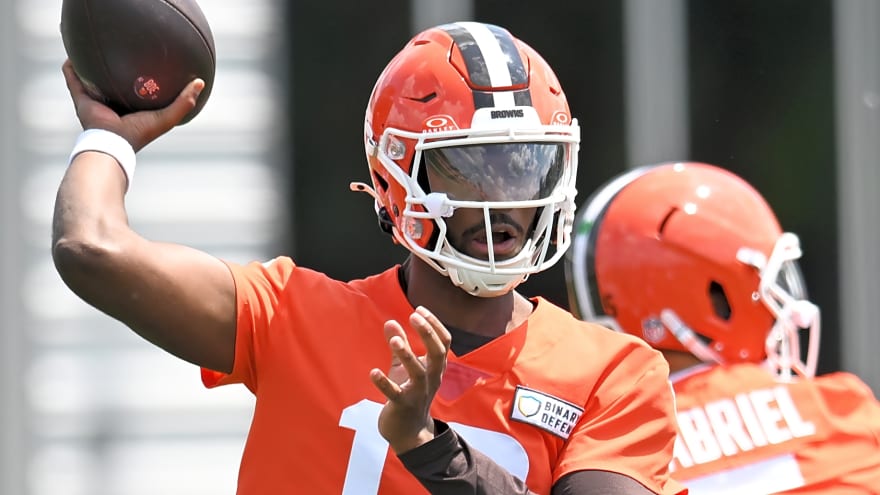
Browns make curious decision with rookie QB Shedeur Sanders
The Cleveland Browns are giving Shedeur Sanders special treatment in training camp, but it's not the type of favoritism the fifth-round pick would necessarily want. Per Daniel Oyefusi of ESPN, Sanders is the only Browns quarterback who has not been taking reps with the first-team offense during OTAs or the first two practices of training camp. Former Pittsburgh Steelers first-round pick Kenny Pickett, veteran Joe Flacco and rookie Dillon Gabriel have all split reps with the first team. Despite being asked to throw passes to members of the equipment staff amid a shortage of professional pass-catchers for a four-quarterback roster, Sanders said he's thankful for the opportunity to show the Browns coaching staff his talents. "I feel like that it's not in my control, so I'm not going to think about that or even have that in my thought process of why it is," Sanders said to a question as to why he's not getting first-team reps. "There's a lot of people who want to have the opportunity to be at this level, and I'm here and I'm thankful to have the opportunity. So, whenever that is, that is." Sanders, 23, believes that he can contribute more to the Browns than what the coaching staff is asking of him. "It doesn't make me feel down or left out because I know who I am as a person," Sanders said. "I know who I am as an individual and I know what I could bring to this team. So, I can never feel less than any circumstance." The Browns selected Sanders with the No. 144 pick in April's draft. As a player whom many draft analysts thought was a first-round talent, Cleveland took what could be the steal of the draft in the fifth round. It's curious why the Browns aren't giving Sanders a shot with the first team early in training camp before the quarterback race becomes more serious. Cleveland should see what Sanders has to offer this summer. Flacco, 40, isn't a long-term solution at the position. Pickett failed in Pittsburgh. The Browns need to gauge what rookies Gabriel and Sanders can do with the first team. Having Sanders throw balls to the equipment staff is a waste of everyone's time. But then again, Cleveland has wasted plenty of quarterbacks.

Cleveland Guardians Slapped With Bad News Before Trade Deadline
The Cleveland Guardians are quite a mystery heading into the MLB trade deadline, as no one seems to know whether they will buy, sell or possibly even do nothing before July 31. The Guardians are hovering around .500, but they are still smack dab in the middle of the American League Wild Card race. That's in spite of losing 10 straight just before the All-Star break. Even with Cleveland remaining in contention, there are some who believe the Guardians might sell given their conservative nature, but talk show host Bruce Drennan has provided some rather bad news for the team in that regard: the players they might want to move don't have much value. “No top prospects for a big bat, and I don’t necessarily see us selling players, like Carlos Santana or Lane Thomas. What can you get in return?” Drennan said. Drennan has a point. Santana and Thomas are both impending free agents, and neither has been all that good this season. Santana owns a .665 OPS, and Thomas has been on and off the injured list while hitting just .160 on the year. Of course, the Guardians would surely be able to land a hefty return for players like Steven Kwan and Emmanuel Clase, but it does not seem like Cleveland is going to move either of those two stars. Perhaps the Guardians will surprise some people and go all in by adding pieces at the deadline, but that isn't exactly in their nature. We'll see what happens before the end of the months, but it stands to reason that Cleveland might just stand pat, as Drennan anticipates. Read More Cleveland Guardians Coverage
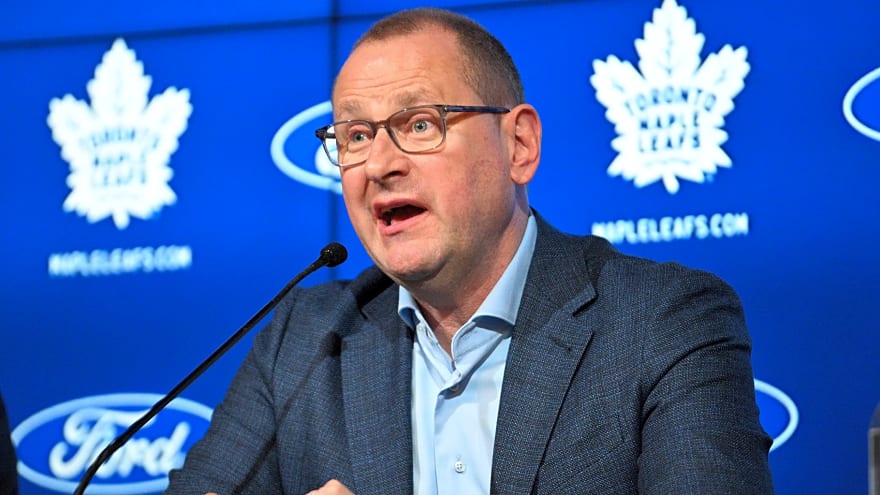
Important trade stalls as Maple Leafs dangle bottom-six forward
The Toronto Maple Leafs are still looking for a solution to their bottom-six surplus, and veteran forward Calle Jarnkrok remains at the center of trade discussions. However, according to The Fourth Period, trade talks surrounding the 33-year-old winger have failed to gain momentum. They write: “He has a $2.1M cap hit and owns a 10-team no-trade list. The market hasn’t been vibrant, to this point, but the Leafs will continue to dangle him.” Why can’t the Maple Leafs find a taker for Jarnkrok? Jarnkrok has quietly been on the trade block for much of the offseason, but general manager Brad Treliving has yet to find a taker. After adding several depth forwards this summer, the Leafs now face a crowded bottom six — and Jarnkrok’s age, injury history and $2.1M cap hit through 2025–26 aren’t helping his value. Since joining Toronto, Jarnkrok has appeared in only 71 games over two seasons, scoring a modest 28 points. While his defensive versatility and penalty-killing ability are assets, his declining offensive production and durability concerns have made teams wary. With training camp approaching, the Maple Leafs may be forced to keep Jarnkrok on the roster — or retain salary in a deal — if they want to create space and flexibility. Dropping his cap hit down to just over $1M would open up the market a little. Until then, the Swedish forward remains a trade candidate in limbo. This isn’t great news as moving Jarnkrok from the roster is an important item on the team’s to-do list. Treliving would like more cap space, and with Jarnkrok and David Kampf both still on the roster, it hampers the GM’s ability to do other things.
